研究紹介
医学系
- 解剖学・神経科学グループ(武井陽介,佐々木哲也,岩田卓,森川桃)
- 認知行動神経科学グループ(山田洋)
- 神経生理学グループ
(小金澤禎史) - システム生理学グループ(國松淳)
- 分子行動生理学グループ(櫻井武,平野有沙,齊藤夕貴)
- 精神神経学グループ
(新井哲明,太田深秀,根本清貴)
*印の付いている教員は,博士前期・後期課程の大学院生の受け入れが可能です.
The faculty members with an asterisk can accept both Master’s and Doctoral students.
#印の付いている教員は,博士前期課程の大学院生のみ受け入れ可能です.
The faculty members with a hash tag can accept Master’s students.
解剖学・神経科学グループ
Anatomy and Neuroscience Group
more
- *武井 陽介(医学医療系 教授) ytakeimd.tsukuba.
- *佐々木 哲也(医学医療系 助教)tsasakimd.tsukuba.
- 岩田 卓(医学医療系 助教)iwatamd.tsukuba.
- 森川 桃(医学医療系 助教)momomd.tsukuba.
- *Yosuke Takei (Professor, Institute of Medicine)
- *Tetsuya Sasaki (Assistant Professor, Institute of Medicine)
- Iwata Suguru (Assistant Professor, Institute of Medicine)
- Morikawa Momo (Assistant Professor, Institute of Medicine)
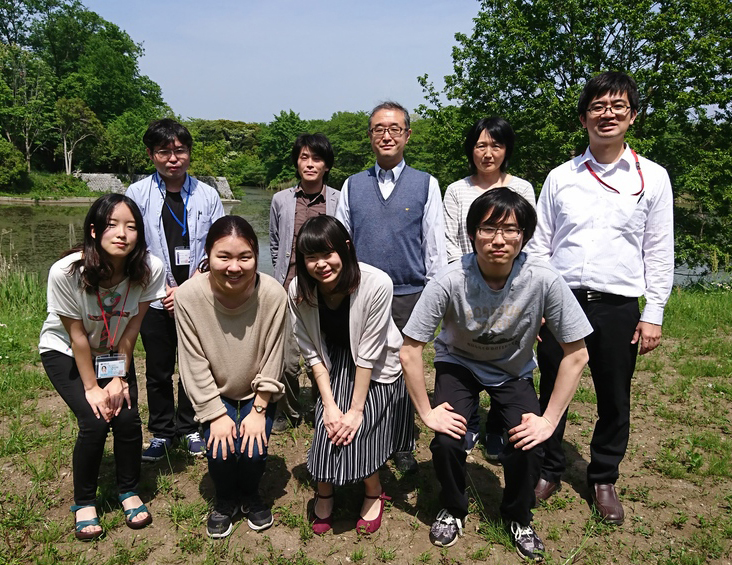
統合失調症や自閉症などの精神神経疾患には病態の理解に基づく根本的治療法がなく、多くの患者さんが症状と社会不適応に悩んでいます。これらの疾患の背景にはニューロンの機能や形態の異常が存在し、それは遺伝要因と環境要因の複合的な影響によってもたらされます。私たちは精神神経疾患の病態を分子レベルで解明し、治療や予防へと繋げることを目標に、以下のテーマに注目して研究を行っています。
- ニューロンの細胞内輸送機構
- ニューロンの細胞内輸送の破綻と精神神経疾患
- 免疫異常と脳の発達・機能異常
- 精神神経疾患のマウスモデル研究
Our goal is to elucidate the pathogenesis and pathophysiology of schizophrenia and autism. In these illnesses, neuronal morphology and function are affected by a combination of genetic and environmental factors. A better understanding of the molecular mechanisms underlying these illnesses is important as it will lead to the future development of novel methods of treatment and prevention. Our current research is focusing on the following four areas:
- Mechanisms of intracellular transport in neurons.
- Mental illnesses based on the disruption of intracellular transport machinery.
- Neuronal abnormalities caused by immunological abnormalities.
- Analysis of mouse model of mental illnesses.
認知行動神経科学グループ
Cognitive and Behavioral Neuroscience Group more
研究紹介動画(YouTube)
- *山田 洋(医学医療系 准教授)h-yamadamd. tsukuba.
- *Hiroshi Yamada (Associate Professor, Institute of Medicine)
ヒトは日々の生活の中で、物事の良し悪しを判断して暮らしています。このヒトの価値観が脳から生まれる仕組みの理解を目指して研究しています。神経経済学 (Neuroeconomics)と呼ばれる、神経科学とミクロ経済学を融合した最先端の学際的な研究です。例を挙げると、
・喉が乾いた時に飲む水は美味しいのなぜ?
・なんでペプシよりコーラが好きなの?
・ギャンブルってどきどきしますよね?
といった事柄に関わる脳機能を調べます。ヒトとそのモデル動物のマカクザルに認知行動課題をおこなわせ、乾きや空腹などの欲求の程度に応じて脳の価値判断に関わる活動がどうのように活動するのかを調べます。また、脳の活動を操作することにより、観察した脳の活動が行動に与える影響を調べています。操作により脳の正常な機能とその異常を調べることで、精神疾患の一つであるうつ病の理解を目指しています。
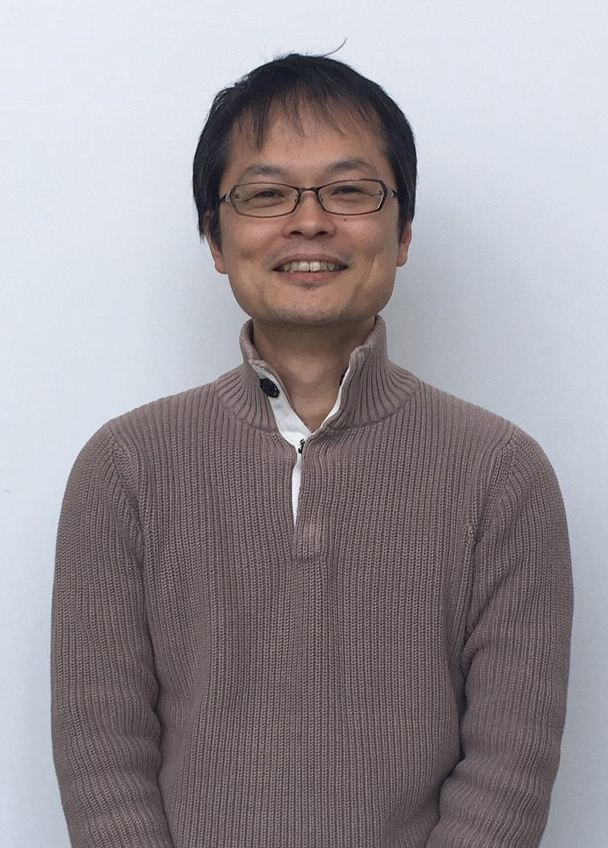
In our daily lives, humans evaluate values of actions or items. My research aims to understand the neural mechanism of value-based decision makings in humans and animals. Neuroeconomics is a cutting-edge interdisciplinary research that combines neuroscience and microeconomics. For example:
・Why is water delicious when you are thirsty?
・Why do you prefer coca cola than Pepsi?
・Gambling makes you nervous, right?
We examine brain functions related to such things. We use humans and their model animal, the macaque monkey, and perform cognitive behavioral tasks to investigate how the brain's activities related to decision-makings occurred depending on the level of needs such as thirst or hunger. In addition, by manipulating brain activity, we are investigating the effects of observed brain activity on behavior. By examining brain’s normal functions and abnormalities, we hope to understand a mental illness, such as
depression.
神経生理学グループ
Neurophysiology Group
more
- *小金澤 禎史(医学医療系 准教授)t-koganemd.tsukuba.
- *Tadachika Koganezawa (Associate Professor, Institute of Medicine)
脳による血液循環および呼吸運動の微細なコントロールは生体の恒常性維持にとって重要な役割を果たしています。それゆえ、これらのシステムが正常に働かない場合には、重大な疾患をもたらすことになります。しかしながらその実態については、未だに多くが不明なままです。当研究室では、そのブラックボックスを明らかにするために、げっ歯類のin vivo標本およびin situ標本(経血管灌流標本)を用いて、主に電気生理学的手法を用いた循環調節中枢および呼吸中枢の詳細な解析を行っています。現在、特に、①循環調節中枢の化学受容性についての解析、②呼吸-循環連関についての解析、③それらの破綻によってもたらされる疾患の解析を行っています。

Cardiovascular and respiratory regulation by the central nervous system plays crucial roles in human homeostasis. Disorder of this regulatory system causes serious problems in a living body. Despite this, it has been remained that lots of unknown mechanisms in the cardiovascular and respiratory centers. In order to investigate these mechanisms, we are electrophysiologically approaching to mechanisms of cardiovascular and respiratory regulation by the central nervous system using in vivo preparation and in situ preparation (arterially perfused preparation) of rodents. At present, we are especially studying that I) the chemosensitive mechanism in the cardiovascular center, II) the relationship between cardiovascular and the respiratory centers (cardiorespiratory coupling), and III) diseases which induced by disorder of these systems.
システム生理学グループ
Systems physiology Group
more
- *國松 淳(医学医療系 助教)jkunimatsumd.tsukuba.
- *Jun Kunimatsu (Assistant Professor, Institute of Medicine)
私たちを取り巻く環境は時々刻々と複雑に変化しますが、生物はそれに合わせて適切に行動することができます。このような、進化の中で生物が獲得した適応行動の発現機構については、まだ明らかになっていないことが多くあります。我々の研究グループでは、これら適応行動の神経メカニズムを、感覚入力から行動発現に至るシステムとして理解し、精神・神経疾患など適応行動の機能が働かない病態を解明することで医学へ貢献しています。現在は特に、①呼吸が認知機能に与える影響、②社会性の基盤となる神経回路、③随意呼吸の制御機構について研究を行っています。研究方法としては、行動課題を用いたヒトとサル(マカクザル)の比較や、サルの脳の活動をミリ秒レベルの解像度で記録したり、神経回路選択的に活動操作したりすることによって神経ネットワークによる情報処理機構を詳細に調べています。
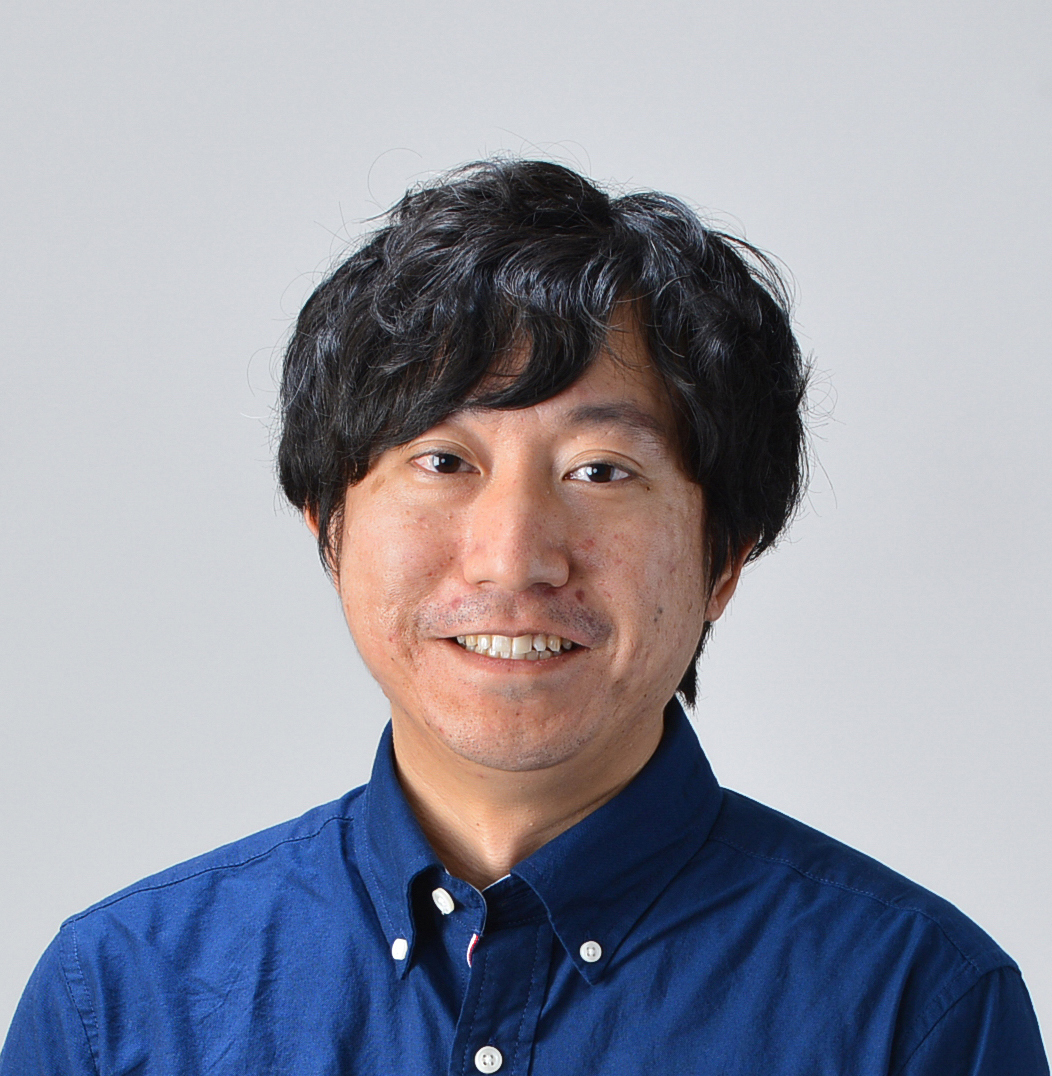
We flexibly adjust our behavior to adapt to the dynamically changing environment in a complex manner. The neuronal mechanisms underlying these adaptive behaviors, acquired through evolution, remain unclear. Our laboratory aims to understand the neural mechanisms of these adaptive behaviors at the system level from sensory input to behavioral execution and contribute to the medical field by elucidating pathological conditions such as psychiatric and neurological diseases in which adaptive behaviors are impaired. Therefore, we examine human and monkey behaviors by using cognitive tasks and analyzing neuronal activity during the task at the millisecond time resolution in monkey. Currently, our focus is on the following themes: (1) The effects of breathing on cognitive functions. (2) Neural circuits underlying social behavior. (3) Neural mechanisms of voluntary breathing.
分子行動生理学グループ
Molecular Behavioral Neuroscience Group
more
- *櫻井 武(医学医療系 教授) sakurai.takeshi.gfu.tsukuba.
- *平野 有沙(医学医療系 助教) hirano.arisa.gtu.tsukuba.
- 齊藤 夕貴(医学医療系 助教) saito.yuki.gmu.tsukuba.
- *Takeshi Sakurai (Professor, Institute of Medicine)
- *Arisa Hirano (Assistant Professor, Institute of Medicine)
- Yuki Saito (Assistant Professor, Institute of Medicine)
神経ペプチドはさまざまな神経機能の調整・制御にかかわり、多彩な生理機能に関与しています。私たちは、新規生理ペプチドの同定とその機能解析を通して、未知の生理機能の解明と、その作用機序を明らかにしてきました。神経科学的解析から、臨床応用を視野に入れた解析までを取り扱い、以下のテーマで研究活動を行っています。
- 睡眠覚醒制御機構の解明
- 社会行動を制御する神経経路の解明
- 冬眠様状態を制御する神経機構の解明
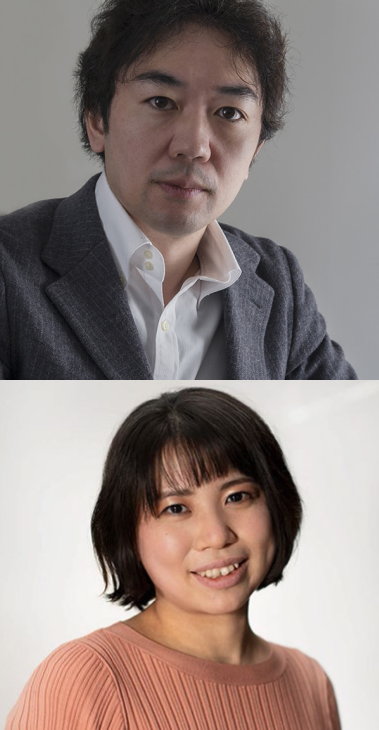
We are interested in neuropeptides, which play a variety of roles in regulation of the central nervous system. We have tried to identify novel neuropeptides by various biochemical searches, and define their physiological functions by neuroscientific approaches. Through these processes, we are currently performing researches in:
- Deciphering the neuronal mechanisms that regulate sleep/wakefulness states.
- Revealing neuronal pathways that regulate social behavior and social distance.
- Analyzing the neuronal mechanisms that control regulated hypometabolism.
精神神経学グループ
Psychiatry and Neurology Group
more
- *新井 哲明(医学医療系 教授) 4632tetsumd.tsukuba.
- *太田 深秀(医学医療系 教授)精神神経学 otamd.tsukuba.
- 根本 清貴(医学医療系 准教授)精神神経学
- *Tetsuaki Arai (Professor, Institute of Medicine)
- *Miho Ota (Professor, Institute of Medicine) Psychiatry and Neurology
- Kiyotaka Nemoto (Associate Professor, Institute of Medicine) Psychiatry and Neurology
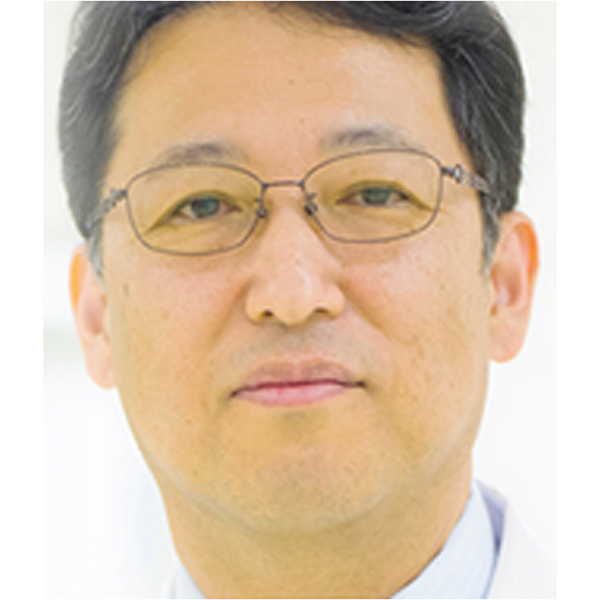
現代社会ではうつ病や発達障害、認知症といった、いまだ病気の全体像が解明されていない疾患に悩まされる患者様が数多くいらっしゃいます。この「脳」と「こころ」の相互作用により引き起こされる症状を明らかにするためには薬理学、生理学、分子遺伝学、神経画像学などに基づく生物学的側面と、精神病理学、心理学などに基づく心理学的側面の両方に対する深い知識と理解が必要です。我々の研究グループでは精神疾患の病因を明らかにし、よりよい治療法を開発するために日夜研究を行っております。都心から45分という利便性があり、科学と自然と文化のバランスのとれたこのつくばの地で、新たな精神医療の発展につながるような研究に共に取り組んでいきましょう。
Nowadays, there are many patients suffering from the diseases of which the whole aspect has not yet been elucidated, such as depression, neurodevelopmental disorders, and dementia. To clarify the symptoms caused by the interaction between the "brain" and "feeling", pharmacology, physiology, molecular genetics, neuroimaging and other biological aspects, as well as psychopathology and psychology were fully required. Our research group work to elucidate the etiology of mental illness and to develop better treatments. Let's work together on research that will lead to the development of new psychiatric care in this Tsukuba area that is 45 minutes from the city center and has a balance between science, nature and culture.
山田 一夫 研究室 Yamada Lab more
- *山田 一夫(人間系 教授) kayamadahuman.tsukuba.
- *Kazuo Yamada (Professor, Faculty of Human Sciences)
行動神経科学分野では、ヒトの心(精神) のメカニズムを知ろうとする心理学の一分野 として、動物やヒトの行動の機能を生物学的、とくに神経学的基盤のもとに解明することを目指しています。なかでも本分野では、とくに記憶・学習のような,ヒトや動物の経験による行動の変容に焦点を当てて研究しています。具体的には、ラットを用いて、
- 動物の記憶・学習能力を測定する方法の開発
- これらの記憶・学習課題での成績に及ぼす脳損傷、神経毒投与、薬物投与の影響
- 記憶障害を有する各種神経変性疾患のモデル動物の開発
- 学習・記憶過程における神経伝達物質,伝達物質受容体の関与やその機構
に興味を持ち、研究を進めています。

Behavioral Neuroscience Field is trying to clarify the biological and neural mechanisms of various human and animal behaviors. We especially focus on the neural mechanisms of learning and memory in rats: to develop methods to measure animal learning and memory, to examine the effects of brain lesions, neurotoxin treatment and drug treatment on learning and memory, to develop animal models of neural degeneration disease that includes memory disorder, and to analyze the involvement of neurotransmitter and receptor systems in memory and learning processes. We also work with the evaluation of psychotropic drugs using animal models of psychological and psychiatric diseases.
高橋 阿貴 研究室 Takahashi Lab
More (Takahashi)
- *高橋 阿貴(人間系 准教授) aktakahahuman.tsukuba.ac.jp
- *Aki Takahashi (Associate Professor, Faculty of Human Sciences)
私たち一人ひとり、性格が異なります。マウス(ハツカネズミ)も、怖がりの個体がいれば、攻撃性が高い個体、ストレスに脆弱な個体など、様々な行動特性において個体差が観察されます。私たちの研究室では、社会行動の個体差を生み出す生物学的メカニズムを明らかにするために、脳の神経回路、免疫系や腸内細菌叢、そして遺伝的基盤という幅広い視点から研究を行っています。現在は、社会行動の中でも特に攻撃行動に着目して研究を行っています。
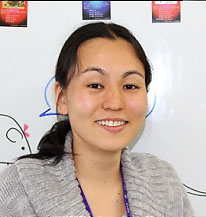
There are large individual differences in many behavioral phenotypes, such as emotionality, aggression, sociability and stress-susceptibility in the mouse (Mus musculus). My research interest is to understand biological mechanisms that produce these individual differences in social behavior, especially aggressive behavior, from multi-dimensional aspects including gene, neural circuit, immune system, and microbiota.
綾部 早穂 研究室 Ayabe Lab more
- *綾部 早穂(人間系 教授) sahoayahuman.tsukuba.
- *Saho Ayabe (Professor, Faculty of Human Sciences)
知覚は個人の経験(記憶)に基づきます。そして、ある対象に対して、好き嫌い、快不快を感じることは、多くの場合は、この対象をどのように知覚するのかということに依存します。また知覚は文脈の影響も強く受けます。知覚学習、記憶、快不快感、構え、文脈、感覚間相互作用をキーワードに、様々な感覚モダリティ(特に、嗅覚と味覚)を通して、ヒトの知覚の機序の解明に近づくことを研究の目標としています。
Perception is based on individual experience (memory). The likeness or pleasantness of an object in the external environment often depends on how the object is perceived. Perception is also strongly influenced by context. The research goal of our lab. is to approach the elucidation of the mechanism of human perception through various sensory modalities (especially, olfaction and taste sensation), using perceptual learning, memory, hedonics, set, context, and inter-sensory interaction as keywords.
仲田 真理子 研究室 Nakata Lab
More
- *仲田 真理子(人間系 助教) nakata.mariko.ftu.tsukuba.
- *Mariko Nakata (Assistant Professor, Faculty of Human Sciences)
本研究室は、攻撃行動や、性行動、社会的認知など社会行動を主な研究対象とし、その基盤となる脳内機構、神経内分泌機構について、遺伝子、分子、組織、生理等のレベルでの解析を通して明らかにすることを目指しています。マウスを用いて詳細な行動解析を行うとともに、遺伝子ノックダウンや光遺伝学、化学遺伝学の手法などを組み合わせることによって、社会性の形成や維持を支える脳の働きと仕組みを解き明かそうとしています。
Our laboratory studies social behaviors such as aggressive, sexual, and social recognition to understand neural and neuroendocrine mechanism of those behaviors from genetic, molecular, anatomical and physiological levels by combining detail behavioral analysis with neuroscience techniques such as gene knockdown, optogenetics, and chemogenetics using mouse model.
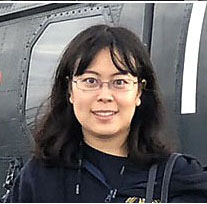
パスクアロット 研究室 Pasqualotto lab
- *パスクアロット(人間系 准教授) pasqualotto.achil.fwu.tsukuba.ac.jp
- *Pasqualotto Achille (Associate Professor, Faculty of Human Sciences)
山中 克夫 研究室 Yamanaka Lab more
- *山中 克夫(人間系 准教授) yamanaka.katsuo.gnu.tsukuba.
- *Katsuo Yamanaka (Associate Professor, Faculty of Human Sciences)
私の専門は老年臨床心理学です。主に認知症の人やその介護者を対象に神経心理学的リハビリテーションの考えに立脚した研究を行っています。また,研究を行う際には常に実践を意識しています。私たちの研究室では,次のような研究テーマに興味のある学生や研究者を歓迎します。
- 認知症の人やその介護者に対する心理社会的な介入やサポート
- 認知症の人やその介護者の心理的評価
- 認知症の人に対する社会的態度
- 神経心理学的リハビリテーションに結び付くような老年心理学研究
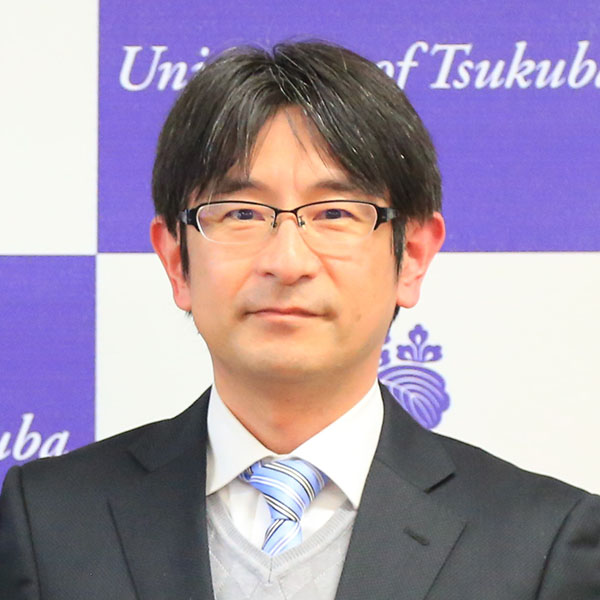
My specialty is geriatric clinical psychology. Most of the subjects are people with dementia and their carers. We value a perspective of neuropsychological rehabilitation when we work with them. Moreover, we always consider translation from our studies to practice. Our group welcomes students and researchers who are interested in themes as follows:
- Psychosocial interventions and support to people with dementia and their carers.
- Structured group activities for people with dementia, such as cognitive stimulation and reminiscence therapy
- Psychological assessments for people with dementia and their carers.
- Social attitude to people with dementia.
- Geropsychological studies related to neuropsychological rehabilitation.
三盃 亜美 研究室 Sanbai Lab
- *三盃 亜美(人間系 助教) sambaihuman.tsukuba.ac.jp
- *Ami Sanbai (Assistant Professor, Faculty of Human Sciences)
言語の理解・表出、読み書きなどの言語機能に障害のある人々は、学校生活や仕事、日常生活で困難さを抱えており、効果的な支援や指導・訓練を必要としています。効果的な支援や指導・訓練を提供するためには、症状や原因について正しく理解していなければなりません。私たちは、認知神経心理学的アプローチから、障害メカニズムを解明し科学的根拠のある支援や指導・訓練へとつなげることを目標に、以下のテーマで研究を行っています。
- 言語の理解・表出、読み書きなどの言語機能における障害のメカニズムの解明
- 症状や認知特性を正確に把握するための検査開発
- 症状および認知特性に合わせた効果的な支援や指導・訓練の開発
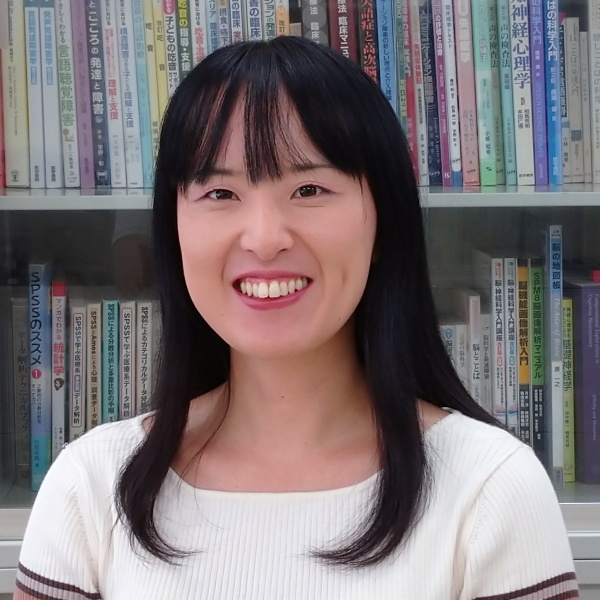
People with deficits in processing of spoken and/or written language have various difficulties in school, work, and daily life. To provide effective supports and treatments, deep understanding of symptoms and causes is important. We aim to clarify underlying mechanisms of deficits in language processing and develop scientific evidence-based supports and treatments, using cognitive neuropsychological methods. Our current research is focusing on the following:
- Research on underlying mechanisms of deficits in language processing
- Development of tests to detect symptoms and cognitive deficits
- Development of effective supports and treatments based on symptoms and cognitive characteristics
岡崎 慎治 研究室 Okazaki Lab
- #岡崎 慎治(人間系 准教授)
- #Shinji Okazaki (Associate Professor, Faculty of Human Sciences)
本城 咲季子 研究室 Honjo Lab more
- *本城 咲季子(国際統合睡眠医科学研究機構 助教) honjoh.sakiko.gfu.tsukuba.
- *Sakiko Honjoh (Assistant Professor, WPI-IIIS)
私たちは長時間起き続けるとどんどん眠くなり、その後の睡眠は長く深くなります。また、起きている間に大脳皮質が活発にはたらくと、活発に働いた脳領域の眠りは、働かなかった脳領域の眠りより深くなります。私たちはこの「睡眠と覚醒の相互作用」を理解するために、私たちはマウスを長時間覚醒状態に置いた後に睡眠をとらせ、その間に脳で起こる神経発火や遺伝子発現の変化を調べる実験を行っています。個体レベルでの睡眠覚醒状態だけでなく、睡眠圧の指標であり記憶の固定化にも重要な徐派脳波にも着目しています。
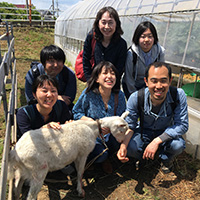
We are interested in homeostatic sleep/wake regulation in behavioral vigilance states (e.g., mice sleep longer after when they stayed awake longer) and in cortical neural activity (e.g., a cortical region sleeps deeper when the region has been active during prior waking). Several wake, non-REM sleep, and REM sleep-promoting or -inhibiting areas have been identified. To understand the nature of the homeostatic regulation, using mice, we investigate what kind of changes the critical sleep/wake regulating centers undergo during persistent waking and subsequent sleep. As for the cortical activity, we focus on slow wave, a hallmark of NREM sleep EEG. Though it is the best marker for sleep need so far and it plays important roles in sleep-dependent memory consolidation, the underlying neural circuits remain largely unknown. Currently we investigate the role of thalamic matrix cells in slow wave generation.
阿部 高志 研究室 Abe Lab more
- *阿部 高志(国際統合睡眠医科学研究機構 准教授) abe.takashi.gpu.tsukuba.
- *Takashi Abe (Associate Professor, WPI-IIIS)
私たちの研究室では,睡眠や眠気とヒトの心や行動との相互作用およびその原理の解明を目指して,次の2つのテーマで研究を行っています。(1)眠気の理解:睡眠不足の状態では,覚醒度が下がり,パフォーマンスが低下しますが,このときの刺激に対する反応時間を見てみると,速く反応できる時と,眠気に耐えられずに反応が遅れてしまう時が現れます。この現象の特徴や,神経学的・生理学的基盤を明らかにするための研究を進めています。また,従来の睡眠・覚醒モデルでは説明ができない眠気の要因を明らかにするための取り組みも行っています。(2)睡眠の心理学的機能の解明:NREM睡眠やREM睡眠の心理学的機能に関する検討を行っており,睡眠中に刺激を呈示することで睡眠に介入し,その心理学的影響を検討しています。
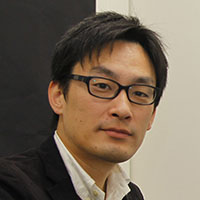
Our laboratory aims to understand how sleep and sleepiness relate to the human mind and behavior. Currently, we are conducting research on two main topics. (1) Understanding sleepiness: It is well known that sleep loss causes fluctuations in response times. This phenomenon is called “state instability.” We are conducting studies to elucidate the characteristics of state instability and the neural and physiological basis of this phenomenon. In addition, we are also investigating the factors that determine “sleepiness” that cannot be explained by conventional sleep-wake models. (2) Understanding the psychological functions of sleep: This research is being conducted in order to understand the psychological functions of human sleep. In particular, we are investigating the psychological effects of sleep intervention by administering stimuli during sleep.
ラザルス/大石 研究室 Lazarus/Oishi Lab more
- *ミハエル ラザルス(医学医療系 教授) lazarus.michael.kau.tsukuba.
- *大石 陽(医学医療系 准教授) oishi.yo.fuu.tsukuba.ac.jp
- *Michael Lazarus (Professor, Institute of Medicine)/Lazarus/Oishi Lab
- *Yo Oishi (Associate Professor, Institute of Medicine)/Lazarus/Oishi Lab
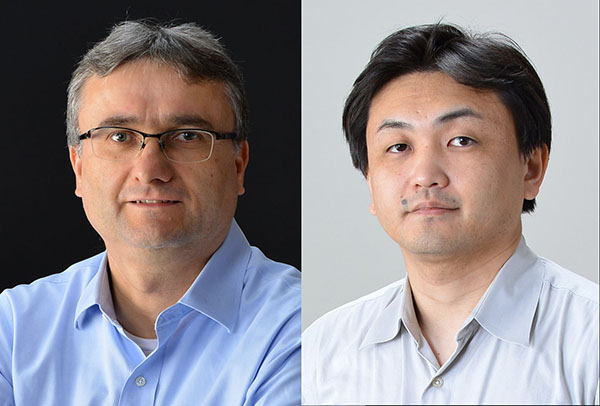
当研究室では、脳が睡眠や覚醒意識を調節するための細胞・神経基盤の理解に取り組んでいます。動物の行動や脳波における特定の神経集団の機能を調べるため、神経活動操作(光遺伝学・化学遺伝学・光薬理学)、神経活動記録、in vivoイメージング(光ファイバ内視鏡)などを活用しています。現在までに、なぜコーヒーで目が覚めるのか、なぜ退屈な時に眠くなるのか、どのようにレム睡眠不足がジャンクフードへの欲求を増加させるかなどについて、成果を出してきました。また、睡眠量が極端に少ないショートスリーパーのようなマウスを作成・利用し、睡眠の機能や制御機構を調べる研究も行っています。
The investigative focus of our laboratory is the cellular and synaptic basis by which the brain regulates sleep and wakeful consciousness. Our experiments seek to link the activity of defined sets of neurons with neurobehavioral and electroencephalographic outcomes in behaving animals by using innovative genetically or chemically engineered systems (optogenetics, chemogenetics or optopharmacology) in conjunction with recording of the electrical activity produced by the brain or in-vivo imaging (e.g. fiber-optic endomicroscopy). Thereby, we made key contributions to our understanding of sleep/wake behaviors, for example, why coffee wakes us up, why we fall asleep when bored, or how REM sleep loss increases the desire for junk food.
坂口 昌徳 研究室 Sakaguchi Lab more
- *坂口 昌徳(医学医療系 准教授) masanori.sakaguchigmail.com
- *Masanori Sakaguchi (Associate Professor, Institute of Medicine)
睡眠が記憶に果たす役割
神経科学の技術革新により、記憶はその情報を担う神経細胞集団の活動パターンに還元できることが明らかになった。例えば、空間情報を担う神経細胞の活動パターンの一部が, 睡眠時にも観察される. この様に、日中の経験が睡眠中に再現されることが記憶の固定化に重要であり、その過程で夢などが引き起こされると考えられている。しかし、それが神経細胞にどの様な変化を引き起こし、長期的な記憶に影響するかは不明な点が多い。私たちのグループは, 最新の光イメージング・遺伝学技術を用いてこの課題に取り組んでいる。これらの基礎研究の成果を通じ、記憶障害を克服する治療法の開発に役立てることを目指している。
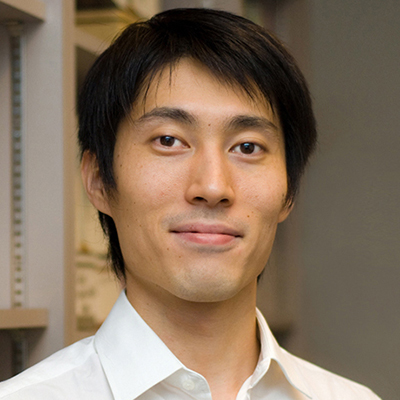
Mechanisms of memory consolidation during sleep
Previous studies suggest that sleep is important for memory formation. For example, neurons that are activated during learning are re-activated during sleep. This reactivation is thought to be responsible for memory consolidation. However, its mechanism is still unclear. In rodents, each sleep episode is very short in duration, making sleep stage-specific investigation of the function of neurons technically challenging. Our group aims to overcome these challenges by utilizing the advanced techniques of optogenetics to manipulate neurons during specific stage of sleep. Our goal is to clarify the mechanisms by which neurons incorporate into memory circuits during sleep, which could contribute to the prevention or treatment of memory disorders.
岩木 直 研究室 Iwaki Lab 岩木先生Webページ
- *岩木 直(芸術系 教授(連携大学院)) s.iwakiaist.go.jp
- *Sunao Iwaki (Professor, Faculty of Art and Design)
近年,非侵襲的に脳活動を可視化する技術は目覚ましい発展を遂げています.われわれは脳波や機能的MRIなどの脳活動計測技術を相補的に用いた,ヒトの認知処理に対応する脳神経の働きを高精度に計測・解析する技術を基盤に,必要に応じて,VRシミュレーションや複数人での脳活動同時計測技術をあわせて用いることで,知覚・認知・行動特性をモデル化する研究や,実社会での人々のふるまいを認知的か点から定量的に評価する技術の開発を行っています.なお,当研究室は国立研究開発法人産業技術総合研究所との連携大学院方式で設置されており,研究活動は産業技術総合研究所において行います.
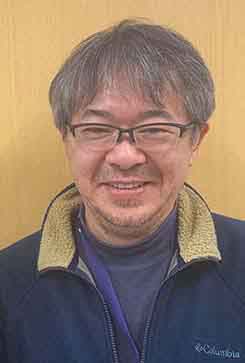
In recent years, non-invasive techniques to measure and visualize human brain activity have made remarkable progress. Based on the complementary use of neuroimaging techniques such as EEG and functional MRI to precisely measure and analyze neural activities in the human brain corresponding to cognitive processing, we have been conducting research to model perceptual, cognitive, and behavioral characteristics of the living human. We also use simultaneous measurement of brain activity from multiple participants as well as VR simulation to quantitatively evaluate human behavior in the real world. Our research laboratory is located at National Institute of Advanced Industrial Science and Technology (AIST); students take classes at University of Tsukuba and carry out their research at AIST (Cooperative Graduate School Program).
武田 裕司 研究室 Takeda Lab 武田先生Webページ
- *武田 裕司(人間系 教授(連携大学院)) yuji-takedaaist.go.jp
- *Yuji Takeda (Associate Professor, Faculty of Art and Design)
製品やサービスの開発において、ユーザの特性を科学的に理解することは重要です。そこで当研究室では事象関連脳電位を指標として、ヒトの注意、認知、感情に関わる研究を行なっています。事象関連脳電位は脳内情報処理を反映する脳波の電位変動であり、行動指標からだけでは観察することが難しい情報処理のタイミングや処理量を評価することができます。当研究室では、実験室内での基礎的な認知機能を調べる研究のみならず、シミュレータや実環境における製品やサービスの開発に資する研究も行なっています。なお、当研究室は国立研究開発法人産業技術総合研究所との連携大学院方式で設置されており、研究活動は産業技術総合研究所において行います。
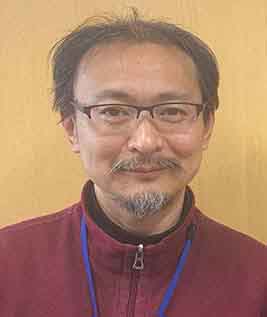
Scientific understanding of user characteristics is important to develop better products and services. In our research laboratory, we investigate human attention, cognition, and emotion by using event-related brain potentials (ERPs). ERPs are temporal variations that reflect information processing in the brain, and they allow us to estimate when and how deeply the information is processed that cannot be estimated by behavioral indices. Our studies are conducted not only in an experiment room to investigate basic cognitive functions but also in simulated and real situations to develop products and services. Our research laboratory is located at National Institute of Advanced Industrial Science and Technology (AIST); students take the classes at University of Tsukuba and carry out their researches at AIST (Cooperative Graduate School Program).
片平 健太郎 研究室 Katahira Lab More
- *片平 健太郎(人間系 准教授(連携大学院)) k.katahiraaist.go.jp
- *Kentaro Katahira (Associate Professor, Faculty of Human Sciences)
当研究室では、脳内の計算過程を数式で表現した計算論モデルやその他の統計モデルを用いて、ヒトやその他の動物の行動を分析する研究に取り組んでいます。特に、強化学習モデルや神経回路モデルなどを用いて行動データを分析し、行動のメカニズムや機能を理解することや、個人ごとの行動の特徴をとらえることを目指しています。計算論モデリングや統計モデリングの方法論に関する理論的な研究も行っています。また、そのようなモデリング技術の応用として、ヘルスケアサービスなどのサービスを個人ごとに最適化するための研究にも取り組んでいます。
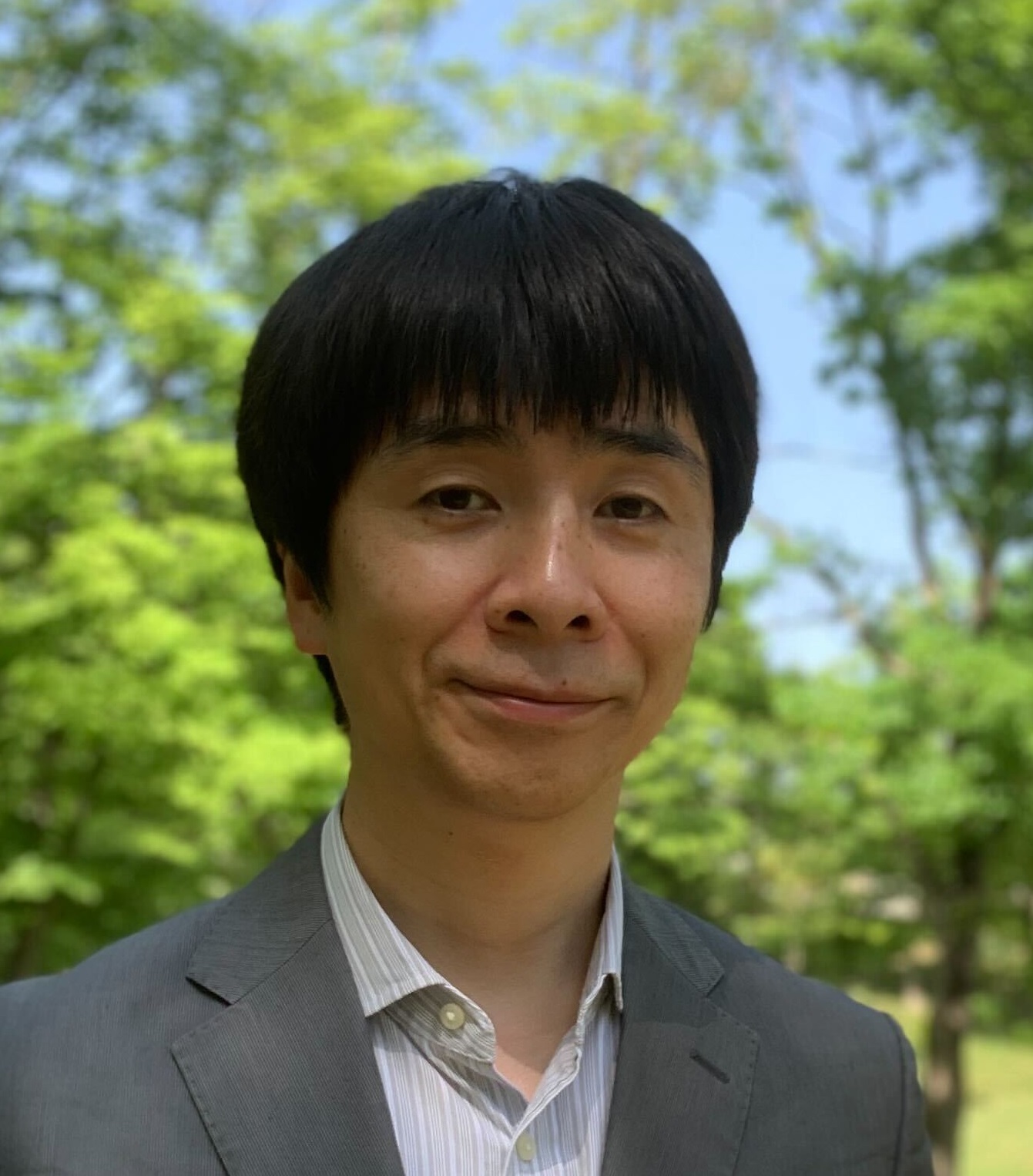
Our laboratory is engaged in research to analyze human and other animal behaviors using computational models that represent computational processes in the brain and other statistical models. In particular, we analyze behavioral data using reinforcement learning models and neural network models to understand the mechanisms and functions of behavior and to capture individual characteristics. We also conduct theoretical work on computational modeling and statistical modeling methodologies. Furthermore, we are trying to apply such modeling techniques to the optimization of health care services.
鶴田 文憲 研究室 Tsuruta Lab more
- 鶴田 文憲(生命環境系 助教)
- Fuminori Tsuruta (Assistant Professor, Faculty of Life and Environmental Sciences)
新生児期の脳は、様々な環境変化に応答して、複雑な高次機能を獲得していきます。これら高次脳機能の調節には、神経細胞の自律的な制御のみならず、ミクログリアによる制御も重要な要因となります。私たちは、多彩な機能を持つミクログリアが、どのようにシナプスや神経回路の形成、脳内恒常性の維持に寄与しているか、以下のテーマを中心に研究を進めています。
- 発達過程における神経細胞-ミクログリアの相互作用
- 自閉症責任遺伝子によるシナプス形成や脳内恒常性の維持
- 出生後の環境変化に連動した体温制御メカニズム
- ミクログリア活性を制御する創薬研究
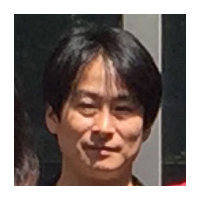
Our goal is to understand the molecular and cellular mechanisms that underlie synaptic connectivity, neural circuit formation, and brain homeostasis during the postnatal stage. Particularly, we are interested in understanding the functional relationship between neurons and microglia. The ongoing projects are as follows;
- Neuron-microglia communication during the developmental stage.
- Synaptic connectivity and brain homeostasis regulated by genes associated with ASD.
- Regulation of body temperature mediated by environmental change after birth.
- Drug discovery for regulating microglial activity.
秋山 英三 研究室 Akiyama Lab more
- 秋山 英三(システム情報系 教授)
- Eizo Akiyama (Professor, Faculty of Engineering, Information and Systems)
